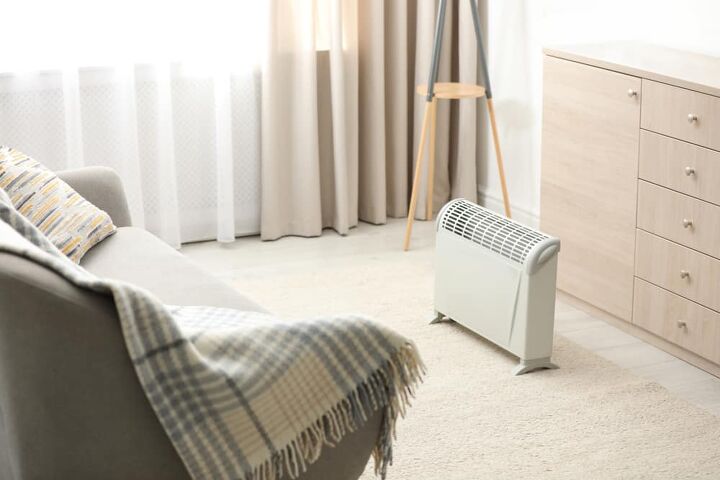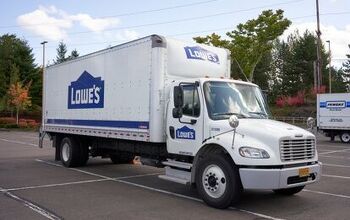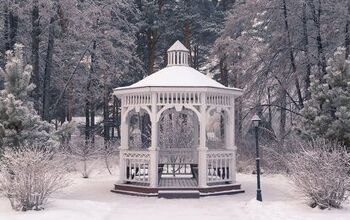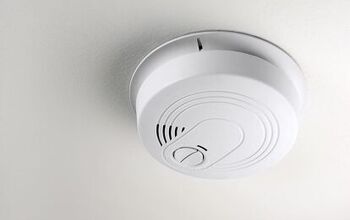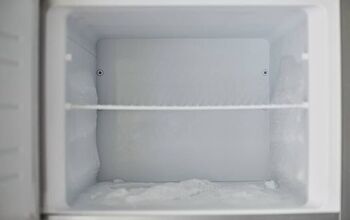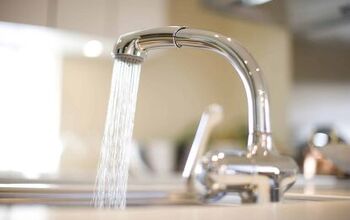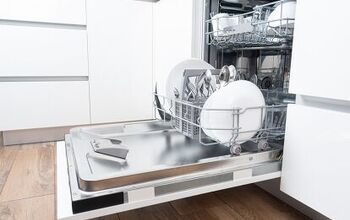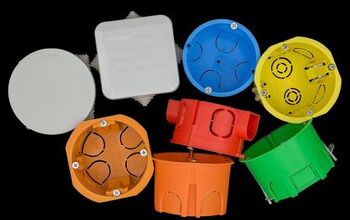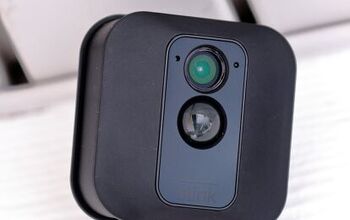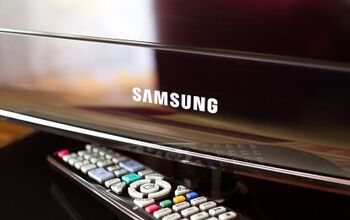How To Prevent A Space Heater From Blowing A Fuse

There’s nothing quite like being cozy during the winter. Depending on the space you live in, it could be an entire HVAC system or something as small as a space heater. The latter can be quite effective for heating small spaces.
Never plug your space heater into an extension cord because it can cause the fuse to blow. You can also unplug other appliances on the same circuit to prevent a blown fuse. Avoid overusing your space heater, and never run it all day and night.
What Does A Fuse Do In A Space Heater?
A fuse is a safety mechanism that protects against an electrical current overflow in electrical equipment and accessories.
Space heaters are one of the most common electrical equipment to overheat quickly, especially when they are used for an extended period of time or are not correctly installed or maintained.
An overheated space heater is harmful since it can be both a safety and a fire hazard or, in extreme situations, explode in plastic and metal fragments. These fuses’ thermal cut-off typically happens through both radial and axial leads.
Prevents Surges
If an electrical current surges through your space heater, the fuse will melt, preventing the electrical current from passing through your device indefinitely.
This is important because an overcurrent can cause severe damage to your heater’s other delicate internal components, such as the heating elements and thermostat, or even ceramic plates in the case of ceramic-based electrical heaters.
What Causes A Space Heater Fuse To Blow Out?
A series of fuses or circuit breakers protect the electrical grid that supplies every home or occupied structure in various parts of the world. Most modern equipment, such as space heaters, operate on the same principle, with fuses replacing circuit breakers.
Your space heater’s fuse is most likely a screw-in type, which means it’s made up of ceramic or glass cylinders put into corresponding sockets.
As previously stated, the most common cause of a fuse melting is an excessive burst of energy rushing through the space heater.
When the space heater is plugged into a power strip rather than a direct electrical socket, or when the space heater is left plugged in during a natural event such as a lightning storm, this happens regularly.
How Do You Prevent A Space Heater From Blowing A Fuse?
One of the most common causes of a fuse melting or blowing out in a space heater is a circuit overload. Most of the time, the circuit is unable to handle the quantity of electricity flowing through the grid.
If you’re utilizing a 3000 Watt space heater, for example, you’ll need to be sure the circuit can manage the amount of electricity it consumes.
Suppose you’re not sure how much electricity the electrical circuit in a particular room in your house can handle. In that case, you can hire an electrician to assist you in figuring out the exact maximum quantity of energy that can be transmitted through the grid.
Below Are Several other ways you can prevent your space heater from blowing a fuse.
Check The Heater Wires
Before you even start using the space heater, check out the wires. Look for exposed wires, cut wires, or any other potential damage. It is important that you find a solution should any of these issues pop up because it is a major fire hazard.
Even the most minor aesthetic damage can eventually lead to a fire hazard. And when it comes to fire, even the tiniest spark can turn into the most significant flame. Be safe, not sorry.
Use Protective Devices
Space heaters have the potential to start a fire. If you can’t smell heated wires or see any smoke – and this happens quite a bit – there’s nothing that you can do to prevent said fire at the moment. To avoid the pitfalls of a space heater, have protective devices installed.
Smoke sensors or detectors are a great thing to have with the presence of a space heater. Particularly at night, when we can detect issues as they occur, those alarms can mean the difference between just a scare and severe damage.
Examine Your Fuse
Keep an eye out for discoloration, melting, or even charring. A fuse that has been darkened or damaged must be replaced with a new fuse that meets the same requirements as the previous fuse.
Make sure the replacement fuse has the same Amperage (A) rating as the old one because misusing fuses could result in too much electricity running through the heater the next time it’s turned on, which could cause damage or breakage to the radiator’s other internal sub-units.
If you’re not sure which fuse to get to replace your older, burned fuse, take it to the store and ask a store employee to assist you in finding a new acceptable fuse that is an exact match for your damaged fuse.
Don’t Use Extension Cords
Space heaters require a specific electrical output. That output is meant to be explicitly handled by the type of outlets that you would find in the home. Under no circumstances should you use extension cords for a space heater.
The reason that you want to avoid extension cords is that they aren’t designed to handle the load provided by space heaters. When you plug space heaters into extension cords, they get very hot very quickly and can lead to fires more often than not.
Consider Adding A New Outlet
Overloading the circuit is one of the biggest hazards with any appliance, let alone a space heater. Be sure to check out your existing circuits in order to know how the loads are distributed. You may come to find that the current setup isn’t optimal for a space heater.
If you require one, add in a new outlet specifically for the space heater. This is a good idea in order to prevent excessive pressure on any of the other circuits. Adding an outlet specifically for the space heater is great to keep the other electrical appliances working correctly without the potential for damage.
Check The House’s Wiring
The best idea may be to contact an electrician prior to the start of the winter season. When the wiring has not been correctly installed, there is an increased chance that the circuit breaker could trip. Even though it isn’t as dangerous as a fire, it’s still a significant inconvenience.
Having a professional electrician check out the wiring could mean potentially improving the wiring. Improved wiring leaves you ready for the winter months ahead.
Examine Your Amperage Capacity
In general, a 120V space heater draws between 8 and 13 amps at most. Because space heaters come in a variety of types, sizes, designs, and models, it’s critical to keep track of the maximum amperage limit.
The maximum amperage limit can be found by using the following formula: Your space heater’s wattage (W) and voltage (V) are stamped on a label that can be found on the back or side of the device.
If the information isn’t there, you can look through your space heater’s owner’s manual to find out how much power it has in terms of Watts (W) and Volts (V).
Calculation ResultsYou can calculate the amperage of your space heater once you’ve known the Wattage and Voltage. A 1500 Wheater with 120V, for example, has a rated amperage of 12.5 Amps.
This implies that if your space heater is exposed to a current greater than 12.5 Amps, the fuse within will melt as a precautionary measure to protect your item from further malfunction. Click here to see the exclusive list if you don’t have a voltmeter.
Unplug Electrical Devices And Appliances Not In Use
There is still some electrical current passing through all unused electrical equipment and appliances, especially if they are plugged in.
Electric space heaters are the same way. A space heater that is plugged into an electrical socket will still have a tiny amount of electricity flowing through it even when it is not in use.
Consider plugging in numerous gadgets, such as your coffee maker, refrigerator, and space heater, into a single electrical outlet while turning off all other tools and appliances. Each device and appliance will add to an existing payload of electricity that circulates through your home’s electrical system.
Take A Break From Your Space Heater
If you leave an electrical equipment on for hours on end without turning it off, it will heat up enormously. It’s the same with your space heater.
When you leave your space heater on all the time, the device’s internal core temperature will surge and most likely exceed the threshold temperature set by its production rules, as specified in your owner’s manual, which comes with your space heater when you buy it.
The extreme heat will eventually disable parts of your heater’s core systems. In this instance, your thermostat will most likely blow first, followed by the fuse, which will attempt to melt to shut down the heater and prevent it from overheating anymore.
Invest In A Space Heater With Safety Features
Having the wiring upgraded or replaced is undoubtedly one way to go. In addition to being able to handle the space heater, it should be able to hold up to other appliance use for the foreseeable future. Depending on the current state of your wiring, though, it could be rather costly.
Investing in a space heater that has safety features, however, kills two birds with one stone. It prevents potential fires, keeping you safe as you stay warm during the winter months.
Ground Fault Circuit Interrupter (GFCI) Plug
A GFCI plug protects and prevents against electric shocks. When buying a new space heater, this is one of the first features that you should look for.
Another thing to note is that you should not use a space heater by water, especially non-GFCI plugs. It’s not only a shock hazard but a fire hazard as well.
Automatic Shut Off
The vast majority of modern space heaters should have an automatic shutoff feature. The feature works by detecting potential overheating through the use of a smart sensor.
When the sensor detects overheating, it shuts the heater off completely. Depending on the model that you go with, it could have a tip-over switch as well.
Use A Strong Cord
Under no circumstances should you use an extension cord with a space heater. Not only that, one of the most common reasons for fire with space heaters is due to faulty cords.
Make sure that whatever space heater you choose has a cord of ample length and stability that will be able to handle the electrical load.
Ensure Certifications
Just about any name-brand space heater will come with some kind of safety label. These labels are from a variety of safety organizations like ETL certified by Intertek or Underwriters Laboratories. You may even find some specific certifications from larger companies like CSA International.
Check for these certifications when buying a new space heater. It certainly isn’t a guarantee, but it at least ensures that your space heater has been tested for specific safety concerns.
Tips To Keep Your Space Heater Running Optimally
Protecting against a blown fuse is essential when using a space heater in your home. That said, there are a few more tips to be aware of.
Those tips come straight from the National Fire Protection Association (NFPA) and the Association of Home Appliance Manufacturers (AHAM).
- Location Matters. Wherever you place your space heater, it should be on a flat, level surface. It is all too common for a space heater sitting on uneven ground to tip over. Providing a stable surface minimizes the chances of tipping.
- Location, Part 2. What you place your space heater near is just as important. Keep it away from curtains or furniture in particular. Anything potentially flammable should stay far away from your space heater. It’s also a good idea to keep it out of range of flammable storage items in garages, basements, and workshops.
- Do Not Use in a Child’s Room. Under no circumstances should you keep a space heater in a child’s bedroom. If there is no other heating source, make sure that you build an enclosure around it. The goal is to keep both kids and pets a minimum of 3 feet away from it at all times.

Ryan Womeldorf has more than a decade of experience writing. He loves to blog about construction, plumbing, and other home topics. Ryan also loves hockey and a lifelong Buffalo sports fan.
More by Ryan Womeldorf



